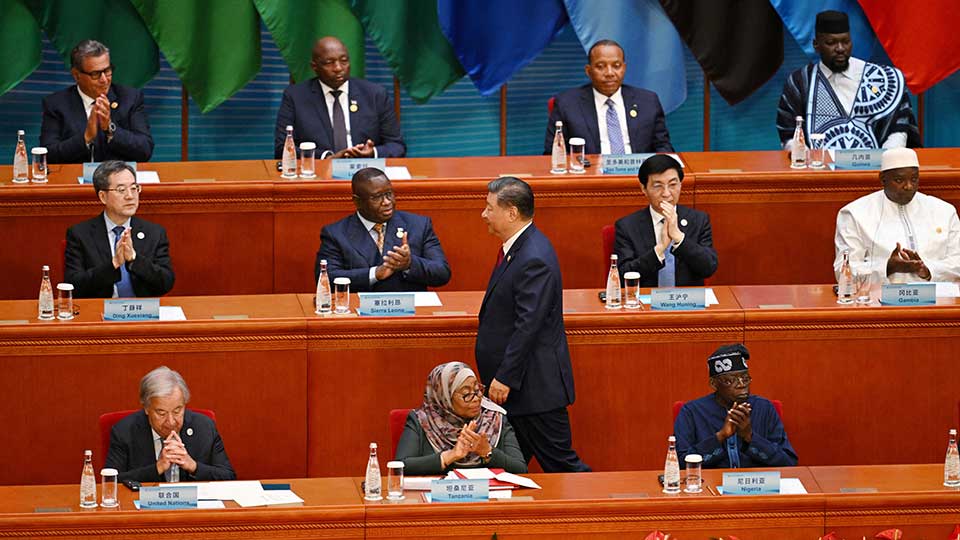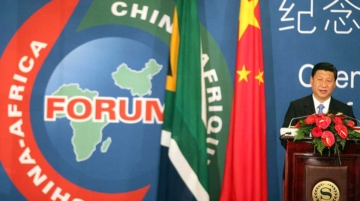
By Chris Alden and Lukas Fiala
As the news cycle surrounding last week’s Forum on China-Africa Cooperation (FOCAC) is gradually slowing down, it’s time to think about the bigger picture and what this summit has achieved. While not evident at first sight, this ninth iteration of FOCAC may well herald a longer-term recalibration of the Africa-China relationship and the idea of “development” that has been so central to it over the past two decades.
What seems clear from last week’s proceedings is Beijing’s ambition to seek a new status quo in its relationship with Africa. From a continent-wide debt crisis to the COVID-19 pandemic and the plummeting of Chinese sovereign lending to Africa, both sides have had to confront a series of new challenges over the past five years. Gone are the heydays of unincumbered economic engagement in the pursuit of hydrocarbons and flashy BRI-style investments. Here is a brave new world in which Beijing increasingly faces a complex set of responsibilities, from debt restructuring to security cooperation.
In this context, FOCAC offers several pointers as to how both sides have begun to respond to these developments. For instance, while China once more committed to several headline figures, including RMB 360 bn of financing in the next three years, the prevalence of public-private partnerships and incentives for Chinese firms enshrine a departure from the state-led lending of the past. Beijing is evidently trying hard to signal the benefits of cooperating with China. In contrast to the 2021 edition, the Action Plan features a corresponding section on “The Key Measures to Support Africa by the Chinese Side in the Next Three Years.”
China has emerged as an external great power in Africa, departing from its once exceptionalist status as a developing country and looking for new language to reframe its engagement.
Similarly, the inclusion of China’s diplomatic trio – the Global Development, Security, and Civilization Initiatives – also attests to a recalibration towards what is now a firmly geopolitical relationship. Apart from statements at the UN, this FOCAC is perhaps the most significant integration of these concepts into policy practice. This offers interesting pointers as to what China intends to do with these initiatives going forward. Especially in the context of their link to multilateralism and global governance reform, the inclusion of the GDI, GSI, and GCI signals both sides’ support for greater African representation in key multilateral bodies such as the UN Security Council.
All this points to the fact that China has emerged as an external great power in Africa, departing from its once exceptionalist status as a developing country and looking for new language to reframe its engagement. In this vein, Xi’s keynote speech has also introduced a more confrontational framing of FOCAC in the context of great power competition with the United States. As observers we have grown used to the lofty rhetoric surrounding Africa-China relations, this FOCAC reflects just how much the geopolitical situation has evolved since 2021, with the polarising wars in Ukraine and Gaza increasingly highlighting the North-South divide in international affairs.
Finally, the bitter reality of FOCAC remains its institutional opacity. Indeed, while the summit documents are often seen to represent a consensus view between African and Chinese officials, many African leaders do not have the democratic mandate to negotiate on behalf of their citizens. And even when they do, it is not always clear when African communities truly stand to benefit from Chinese financing.
Despite these challenges and readjustments, the past week has once more demonstrated that Beijing continues to be among the most consequential external actors on the continent – and FOCAC will continue to serve as a key platform to foster complex and increasingly multi-faceted policy ecosystems amidst an era of global change.
Chris Alden is a professor of international relations at the London School of Economics and Political Science and Director of LSE IDEAS. Lukas Fiala is the project head of China Foresight at LSEIDEAS.








